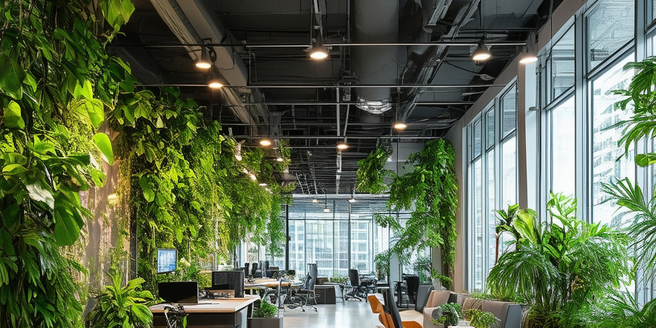
Understanding the Importance of Green Business in Today’s World
In an era when climate change is a significant concern, green businesses have risen to the occasion providing solutions that are both eco-friendly and profitable. Sustainability is not just about the environment; it’s about our health as well. They not only reduce environmental footprints but also use resources efficiently, minimize waste and create job opportunities. Interestingly, green businesses also often utilize cutting-edge technology in their operations to further enhance their sustainability efforts. Moreover, these businesses often offer innovative products and services that challenge traditional industries and stimulate market evolution. The adoption of green business practices is fast becoming a competitive advantage, signaling commitment to sustainability. This effectively enhances a company’s reputation among customers, stakeholders, and shareholders, all the while making a substantial positive impact on the planet.
Key Elements to Consider When Building a Green Business
Creating a green business requires careful planning and strategic implementation. Right from the inception, building such a business should be guided by principles of environmental stewardship. On a foundational level, a green business must prioritize environmental sustainability in its practices. This includes considering the environmental impact of every decision, product, and service offered by the company. It should incorporate renewable resources, waste minimization, and energy efficiency wherever possible. Such businesses can also explore partnerships with other eco-friendly companies to enhance their green initiatives. Additionally, staying educated on the latest environmental legislation and cultivating a green company culture is of great importance too. Employee engagement and education are essential to truly embody and achieve a sustainable business model.
Incorporating Sustainability into Your Business Model
Implementing sustainability into a business model goes beyond just adopting environmentally friendly practices. Introducing sustainable practices can also increase brand recognition and customer loyalty, as consumers are increasingly drawn towards companies that prioritize sustainability. It calls for a realization that there’s an integral relationship between a company’s economic prosperity and its environmental impact. It requires an understanding that sustainable strategies are also economically viable and contribute to business profitability. Businesses also need to remember that their actions could inspire other companies to adopt similar strategies. Sustainability initiatives can include reducing waste through recycling or reusing materials, optimizing energy use, and promoting sustainability to staff and customers. The key is to integrate these into the core business strategy and regularly review and adjust them to ensure they maintain their effectiveness.
Notable Examples of Successful Green Businesses
An increasing number of businesses across various industries are incorporating ecologically responsible practices into their operations, setting a standard for others to follow. Two such examples are Patagonia, an outdoor clothing company known for its advocacy for sustainable fashion, and Interface, an international carpet manufacturing company notable for its innovative waste reduction techniques. Through these examples, we can see that eco-conscious business practices don’t harm profitability but can potentially enhance it. The once perceived competing interests of profitability and ecological sustainability have proven to be mutually compatible. These successful approaches confirm that an environmentally mindful strategy can enhance the bottom line, further strengthening the case for greener business practices.
Future Opportunities in the Green Business Landscape
Green businesses are no longer considered niche. As new technologies emerge and public awareness increases, the scope for green businesses is only broadening. This shift is a result of our evolving understanding of the impacts of climate change and increasingly eco-conscious consumer behavior. From renewable energy solutions to sustainable food systems, the range is vast and still growing. A prime example of this is the proliferation of electric vehicles and solar panel installations. In fact, even established corporations are now seriously incorporating green initiatives into their business models. Furthermore, as regulations tighten and customer preferences evolve, companies will find a competitive advantage in aligning their strategies with environmental sustainability. The future of green business is not only bright, but it is also becoming a necessity.
